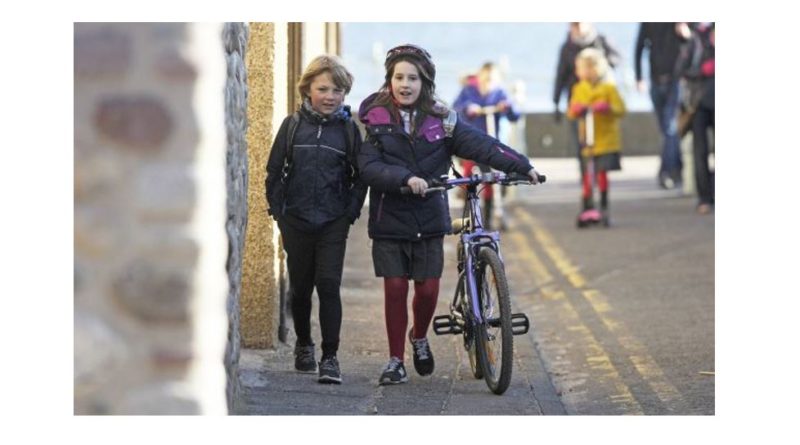Sustrans receives funding to evaluate impact of school streets
Active travel charity Sustrans has received over £95,000 funding from the Road Safety Trust to evaluate the impact of school streets – streets that are open to pedestrians and people on bikes but closed to cars at drop off and pick-up times – on the safety of surrounding roads.
The Road Safety Trust has awarded a total of £837,900 funding to six organisations across the UK. The grants are aimed at improving road safety under the theme ‘innovative traffic calming and provision of vulnerable road users’.
Sustrans will team up with Birmingham City Council to investigate the impact of schools streets through surveying pupils, parents and residents to explore the effect of car-free streets on people’s travel behaviour, perceptions and experiences.
Video technology will also be used to capture footage of schools streets to evaluate the safety, conflict and traffic flow on surrounding streets.
The project follows a survey on school streets commissioned by Sustrans last year, which found nearly two-thirds of UK teachers would support car-free roads outside schools during drop-off and pickup times.
Since September 2019, roads outside six schools in Birmingham have been closed to motor traffic at the start and end of the school day in a bid to reduce congestion and improve air quality, as well as making it easier for children to walk and cycle to school. Following a successful pilot, the council is expanding the scheme to include more schools across the city.
Clare Maltby, Director of England, Midlands and East at Sustrans, said: “We’re delighted to have been granted this funding by The Road Safety Trust, and very much look forward to working with Birmingham City Council on the next phase of this project.
“Whilst we look ahead to life after lockdown and schools returning, it is important that we do not return to high levels of car use to ensure physical distancing, but look for more active ways of travelling, such as walking and cycling.
“We’re hopeful this initiative will highlight the benefits of a cleaner and more active school run, and inspire future transport planning.”
The impact of car-free streets has been highlighted several times before. Cycling events such as the closed road RideLondon have revealed conclusive links between car-free days and air pollution reductions, supporting the case for lowered car use in urban spaces at a time when poor air quality is said to be responsible for the premature deaths of 800,000 a year in Europe and 8.8 million worldwide.
Councillor Waseem Zaffar MBE, Cabinet Minister for Transport and Environment at Birmingham City Council, said: “In Birmingham schools streets are places where we put children and families first, encouraging walking, scooting and cycling, and keep people safe and healthy
“Our Car-Free School Streets pilot with six schools has proven very popular with local communities, and we look forward to working with Sustrans to further demonstrate the impact this approach has on improving people’s health and the environment.”
Other cities are also looking to introduce car-free city centres in a bid to lower air pollution and congestion levels while encouraging active travel such as cycling and walking. Other moves towards car-free zones include the implementation of ULEZ in London in April 2019, which the Mayor of London claimed would introduce the ‘toughest emission standards’ of any world city.
Last month, Sustrans launched a newly-developed interactive map enabling people to view their local authority’s response to the Covid-19 crisis in terms of the provision of safe infrastructure for walkers and cyclists.



